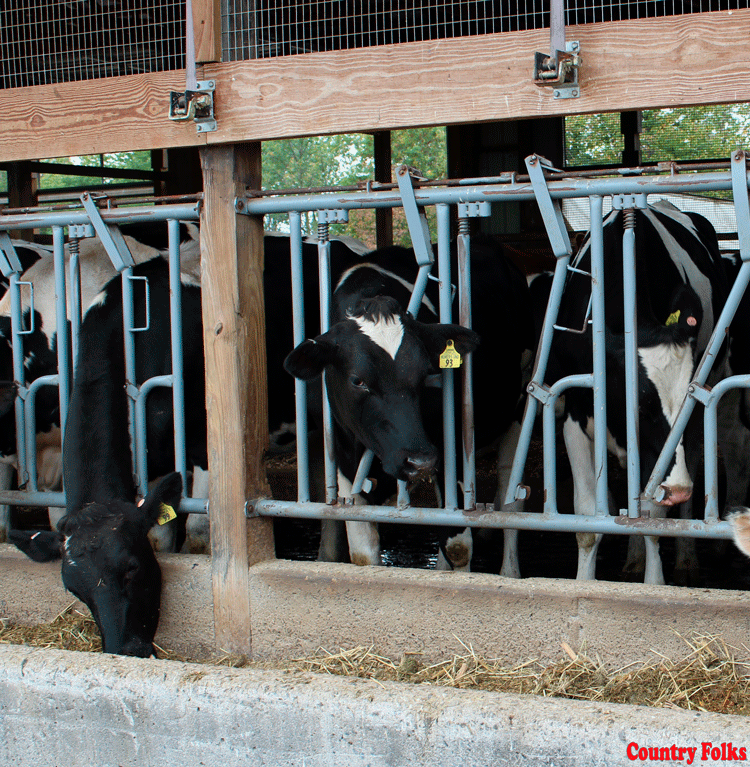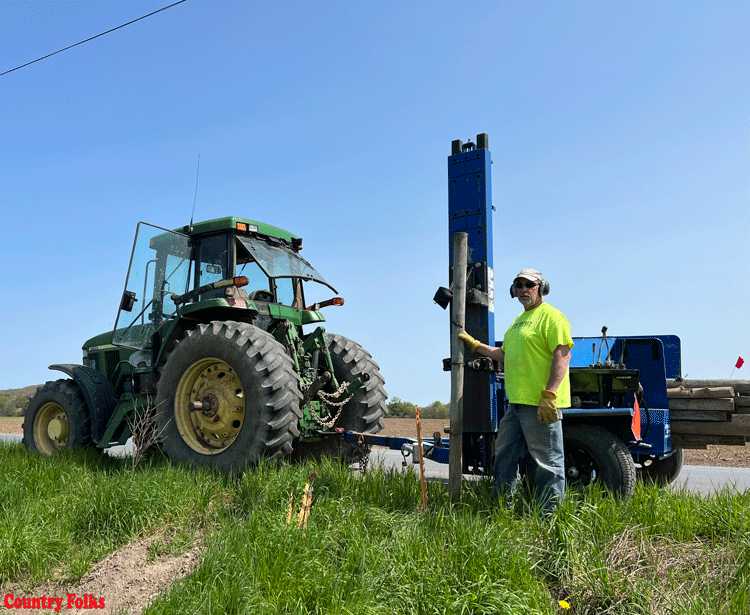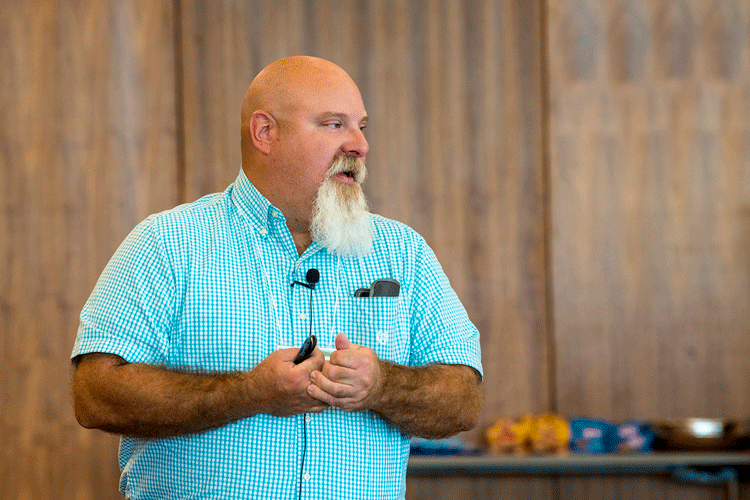by Troy Bishopp
On Nov. 12, media outlets from around the globe sent a shockwave throughout the countryside in reporting that the largest dairy processor in America, Dean Foods Company (and substantially all of its subsidiaries), had filed for voluntary Chapter 11 reorganization proceedings in the Southern District of Texas. Dairy industry watchdog Pete Hardin, editor and publisher of the Wisconsin-based Milkweed dairy newspaper, said, “The news is jaw-dropping and is the biggest bankruptcy in dairy history.”
The company’s website headquartered in Dallas, Texas, read, “In all, Dean Foods has more than 50 national, regional and local dairy brands as well as private labels.”
Brian Rice of Vault Ag Holding Company LLC said signs were showing up for months that the company was in trouble. “I think this was the most expected outcome,” said Rice.
Dean Foods, which has a stock share price market valuation of about $74 million, had a net debt of about $968 million at the end of June.
Since 1975, the amount of liquid milk consumed per capita in the U.S. has tumbled more than 40%. Americans drank around 24 gallons a year in 1996, according to government statistics. That dropped to 17 gallons in 2018. An increasing variety of beverages, including teas and sodas, has hurt milk consumption. So have protein bars, yogurts and other on-the-go breakfasts which take the place of a bowl of cereal. “We’re eating our dairy, not drinking it,” said Mark Stephenson, director of dairy policy analysis at the University of Wisconsin-Madison. As every dairy farmer knows, health and animal welfare concerns have also contributed to this decline as more shoppers seek out non-dairy alternatives.
“The actions we are announcing today are designed to enable us to continue serving our customers and operating as normal as we work toward the sale of our business,” said Eric Beringause, president and CEO of Dean Foods, in a press release. “We have a strong operational footprint and distribution network, a robust portfolio of leading national brands and extensive private label capabilities, all supported by approximately 15,000 dedicated employees around the country. Despite our best efforts to make our business more agile and cost-efficient, we continue to be impacted by a challenging operating environment marked by continuing declines in consumer milk consumption. Importantly, we are continuing to provide customers with an uninterrupted supply of high-quality dairy products, as well as supporting our dairy suppliers and other partners.”
The company intends to use this process to protect and support its ongoing business operations and address debt and unfunded pension obligations while it works toward an orderly and efficient sale of the company. According to Farmshine newspaper reporting by Sherry Bunting, “In addition to pension funds and DFA (Dairy Farmers of America) being owed $172.9 million as a ‘non-insider’ creditor, the list of creditors includes: USDA – $16.8 million; Land O’Lakes – $8.9 million; Saputo – $8.9 million; and former Dean Food CEO Ralph Scozzafava’s unpaid employee severance of $5.4 million.”
New York dairy farmers are protected by the NYS Milk Security Program which shields producers against loss of income in the event a milk dealer defaults in paying for milk received: “Pursuant to Section 258-b of Agriculture and Markets Law, licensed dealers who purchase milk directly from producers or cooperatives are required to secure their purchases by either participating in the state’s Milk Producers Security Fund (MPSF) or by filing full alternate security in the form of a bond or letter of credit.”
The company announced on its website that it had received approvals from the U.S. Bankruptcy Court for the Southern District of Texas for the “First Day” motions related to the company’s voluntary Chapter 11 petitions filed on Nov. 12. The company said it had received an $850 million debtor-in-possession commitment from its existing lenders, led by Rabobank, to keep its operations running.
The court granted Dean Foods interim approval to access up to $475 million of the $850 million in committed debtor-in-possession (“DIP”) financing from some of its existing lenders, which along with cash on hand and operating cash flows is expected to be sufficient to support the company’s continued operations during this process. Among other things, the court has authorized the company to continue paying employee wages and benefits without interruption and making payments to suppliers and vendors in full under normal terms for goods and services provided on or after Nov. 12.
Beringause said, “We appreciate the swift action by the court to approve these motions, which will enable us to continue operating as normal. As we move through this process, we remain focused on providing customers with wholesome, great-tasting dairy products and the highest levels of quality, service and value. I would also like to thank our employees, customers, dairy providers, lenders and other partners for their continued support.”
To add more intrigue to the “milk-shake,” Dean Foods also announced that it is engaged in advanced discussions with DFA regarding a potential sale of substantially all assets of the company to the largest marketing cooperative in the country. According to Farm Journal’s Tyne Morgan, “DFA is looking at purchasing assets, not the company itself.”
“Dean Foods is our largest customer and our primary focus is on ensuring secure markets for our members’ milk,” said David Darr, DFA senior VP, Chief Strategy and Sustainability Office. “DFA is in a fortunate financial position to be able to withstand a situation like this, and as it’s been reported, we’ve had early conversations with Dean Foods about the possibility and potential sale of assets. Throughout the situation our primary focuses on our mission of delivering value to members and dedication to preserving family farms now and into the future.”
The thought of having over 80% of the nation’s milk supply controlled by one entity may be a deal breaker. Anti-trust concerns have resonated with many state Secretaries of Agriculture since the announcement. David L. Swartz, assistant director of programs at Penn State Extension with a focus on the dairy industry, said, “Farmers worry about the ‘rapid consolidation’ of markets. There are only a handful of companies that control the beef, pork and chicken processing plants. Now there are just a handful of companies that control the majority of the milk processing. I don’t know about any implications to this but I’m saying that’s what farmers share as concerns.”
Darin Von Ruden, president of the Wisconsin Farmers Union, said he is concerned about Dean Foods selling itself to DFA. “That’s two of the five biggest companies in the country, and when you start looking at that kind of consolidation, is that good for producers? The answer is probably no,” said Von Ruden.
“The impact on our state’s farmers is of the utmost importance and we are monitoring the situation and how it may affect processing in the state,” said Steve Ammerman, New York Farm Bureau’s manager of public affairs and senior associate director of public policy.
In reality, if the parties ultimately reach agreement on the terms of a sale, such a transaction would be subject to regulatory approval and would be subject to higher or otherwise better offers in the bankruptcy. Hardin cautioned farmers and regulators about a “hurry up and shut up strategy to sell Dean Foods to DFA through bankruptcy court.”
“I believe big changes are coming and this is just the beginning. I’m worried what the ramifications will be in the future for the dairy sector when the two largest farm creditors (the Farm Credit System and the Dutch multinational banking and financial services company Rabobank) are up to their ears in obligations owed to them by Dean Foods,” said Hardin.
To stay informed on this matter visit www.DeanFoodsRestructuring.com or dm.epiq11.com/SouthernFoods.











Leave A Comment